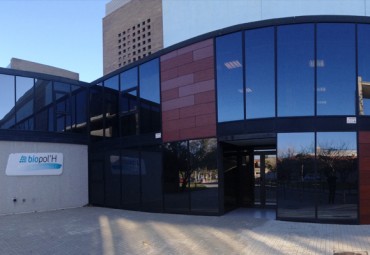We will have a presentation from Noèlia Sanahuja. Her talk is titled:
The facilitatory role of lexical and syntactic co-activation in second language learning
Theories of second language learning such as the Competition Model (MacWhinney, 1992), the Full transfer/Full access account (Schwartz & Sprouse, 1996) and the Acquisition by Processing Theory (Truscott & Sharwood Smith, 2004) assume that first language (L1) syntax facilitates the learning of similar second language (L2) structures. Previous studies have found evidence supporting this claim (e.g. Tokowicz & MacWhinney, 2005; Chang & Zheng, 2015). On another note, Hopp’s (2014) Lexical Bottleneck Hypothesis claims that .difficulties in L2 lexical processing lead to non-target syntactic computations. In line with this hypothesis, cognates —which are processed faster than non-cognates, as defined by the cognate facilitation effect— ease L2 syntactic processing (Miller 2014; Hopp 2017). My thesis investigates how second language learning can be eased, focusing on the facilitatory role of L1 syntactic information (Experiments 1 & 2) and lexical information (Experiment 3) in L2 syntax learning.
Experiments 1 & 2 asked whether when two L2 constructions are available to convey the same meaning, one similar to an L1 structure and the other unique to the L2, the rule underlying the former is learnt with greater ease than the rule underlying the latter. To answer this question, 24 (Exp. 1) and 44 (Exp. 2) Spanish natives learnt a semi-artificial language with a Spanish-Galician cognate vocabulary and Galician-based syntax. Participants learnt two types of subject subordinate clauses; only one existing in Spanish. Participants were first exposed to the language while performing a plausibility judgement task (Exp. 1) or a rule-search task (Exp 2). Then, rule learning was tested in a grammaticality judgement task (GJT). Finally, a verbal report assessed awareness of the rules. Learning was measured by accuracy and d’ scores in the GJT. In Experiment 1, rule learning did not take place. In Experiment 2, learning was significantly larger for the similar rule than for the unique rule (accuracy, p < .001; sensitivity, p < .01). Rule knowledge was conscious for 68% of participants. These results go in line with previous studies supporting the facilitatory role of L1 syntax in L2 syntax learning.
Experiment 3 investigates whether cognates facilitate L2 syntax learning. Sixty Spanish natives with no previous knowledge of Basque will learn an artificial language drawing on that language. Participants will be split into two groups. Each group will explicitly learn five non-cognate nouns and either four Spanish-Basque cognate verbs or four non-cognate verbs. Then, they will be exposed to sentences exemplifying a case-marking rule yielding SOV and OSV sentences (The subject is marked with an –ak and the object with an -a). Learning will be tested in picture-sentence congruency task with non-cognate sentences. A verbal report will assess awareness of the rule. It is expected that, due to the cognate facilitation effect, rule learning will be significantly greater for cognate learners than for non-cognate learners. Rule knowledge is expected to be primarily explicit.
Location: Online (Microsoft Teams). Click here to join the meeting
Or in person attendance: Modular Building, room 1.5
 |

